Readable and highly illustrated, Robbins and Cotran Pathologic Basis of Disease, 10th Edition presents an in-depth, state-of-the-art overview of human diseases and their cellular and molecular basis. This best-selling text delivers the latest, most essential pathology knowledge in a readable, interesting manner, ensuring optimal understanding of the latest basic science and clinical content. More than 1,000 high-quality photographs and full-color illustrations highlight new information in molecular biology, disease classifications, new drugs and drug therapies, and much more. This superb learning package also includes an enhanced eBook with a full complement of ancillary content on Student Consult
Robbins & Cotran Pathologic Basis of Disease, 10th Edition
KSh 18,480.00
Readable and highly illustrated, Robbins and Cotran Pathologic Basis of Disease, 10th Edition presents an in-depth, state-of-the-art overview of human diseases and their cellular and molecular basis. This best-selling text delivers the latest, most essential pathology knowledge in a readable, interesting manner, ensuring optimal understanding of the latest basic science and clinical content. More than 1,000 high-quality photographs and full-color illustrations highlight new information in molecular biology, disease classifications, new drugs and drug therapies, and much more. This superb learning package also includes an enhanced eBook with a full complement of ancillary content on Student Consult
Related products
-
The Great Influenza: The Story of the Deadliest Pandemic in History -Paperback
KSh 650.00Magisterial in its breadth of perspective and depth of research, The Great Influenza provides us with a precise and sobering model as we confront the epidemics looming on our own horizon. As Barry concludes, “The final lesson of 1918, a simple one yet one most difficult to execute, is that…those in authority must retain the public’s trust. The way to do that is to distort nothing, to put the best face on nothing, to try to manipulate no one. Lincoln said that first, and best. A leader must make whatever horror exists concrete. Only then will people be able to break it apart.”
At the height of World War I, history’s most lethal influenza virus erupted in an army camp in Kansas, moved east with American troops, then exploded, killing as many as 100 million people worldwide. It killed more people in twenty-four months than AIDS killed in twenty-four years, more in a year than the Black Death killed in a century. But this was not the Middle Ages, and 1918 marked the first collision of science and epidemic disease.
-
Bailey & Love’s Essential Clinical Anatomy 27th Edition
KSh 20,160.00Bailey & Love is the world famous textbook of surgery. Its comprehensive coverage includes the scientific basis of surgical practice, investigation, diagnosis, and pre-operative care. Trauma and Orthopaedics are included, as are the subspecialties of plastic and reconstructive, head and neck, cardiothoracic and vascular, abdominal and genitourinary surgery. The user-friendly format includes photographs, line diagrams, learning objectives, summary boxes, biographical footnotes, memorable anecdotes and full-colour page design. This book’s reputation for unambiguous advice make it the first point of reference for student and practising surgeons worldwide.
-
Netter’s Clinical Skills, 1st Edition
KSh 3,080.00Make the most of every patient encounter – from the clinical interview and history to the physical exam, both in-office and bedside. This discreet quick reference by Ilene L. Rosenberg, MD, FCCP, Todd Cassese, MD, FACP, and Dennis Barbon, RN, helps you achieve consistent and comprehensive results when collecting data and determining your next steps. Carry this thin, fully illustrated checklist in your white coat pocket for the fastest, most efficient way to access essential information you need to know and remember every day.
-
Introduction to Epidemiology
KSh 4,820.00Recognized by Book Authority as one of the best Public Health books of all time, Introduction to Epidemiology is a comprehensive, reader-friendly introduction to this exciting field. Designed for students with minimal training in the biomedical sciences and statistics, this full-color text emphasizes the application of the basic principles of epidemiology according to person, place, and time factors in order to solve current, often unexpected, and serious public health problems.Students will learn how to identify and describe public health problems, formulate research hypotheses, select appropriate research study designs, manage and analyze epidemiologic data, interpret and apply results in preventing and controlling disease and health-related events. With real-world examples in the form of case studies and news files in each chapter, Introduction to Epidemiology is an accessible and effective approach to learning epidemiology.The Eighth Edition features:- Same organization as the prior edition allowing for easier transition- New or expanded coverage of the models of causation, methods of age adjustment, age-period cohort models, incubation and latency periods, and receiver operating characteristic (ROC) curves- Clearer connection between statistical inference and causal inference- New and updated practical examples and News Files help solidify concepts and show real-world application- Updated tables and figures throughout- Access to Navigate 2 online learning materials, including a comprehensive and interactive eBook, student practice activities and assessments, learning analytics reporting tools, and more- A built-in adaptive learning feature enables students to take self-assessments before or after reading a chapter. Based on their performance they can map out their own custom study plan that directs them to the areas of the text to review.
-
Oxford Handbook of Clinical Specialties (Oxford Medical Handbooks
KSh 6,580.00Now in its 25th year, the Oxford Handbook of Clinical Specialties has been revised and updated by a trusted author team to bring you practical, up-to-date clinical advice and a unique outlook on the practice of medicine. Twelve books in one, this is the ultimate guide to the core clinical
specialties for students, junior doctors, and specialists.This edition features a new and improved referencing system guided by a team of junior doctors, ensuring that the text is packed with valuable references to the most salient data and guidelines across the specialties. Each chapter has been updated on the advice of a team of specialists, to bring you
everything you need for any eventuality on the ward or in the field. This essential handbook guides the reader through the management of an unprecedented spectrum of conditions and eventualties, from sexual health to major incident management. Compact and filled with high quality artwork, directions
to further reading, and wise advice, this book is an ideal resource for revision and reference on the go.With its companion volume, the Oxford Handbook of Clinical Medicine, the Oxford Handbook of Clinical Specialties offers a unique perspective on the practice of medicine. Filled with wit, wisdom, and humanity, this book draws on literature, history, and personal experience to teach a philosophy of
medicine that always puts the patient at the centre of compassionate care. It is a trustworthy companion for anyone with the spirit of self-improvement and a passion for their practice. -
Contact Lens Practice
KSh 29,400.00In this thoroughly revised and updated third edition of Contact Lens Practice, award-winning author, researcher and lecturer, Professor Nathan Efron, provides a comprehensive, evidence-based overview of the scientific foundation and clinical applications of contact lens fitting. The text has been refreshed by the inclusion of ten new authors – a mixture of scientists and clinicians, all of whom are at the cutting edge of their specialty. The chapters are highly illustrated in full colour and subject matter is presented in a clear and logical format to allow the reader to quickly hone in the desired information.
-
Children with Developmental Disabilities: A Training Guide for Parents, Teachers and Caregivers First Edition
KSh 6,370.00This manual is designed as a guide for parents, teachers and caregivers dealing with children up to the age of six who are afflicted by developmental disabilities. The author provides details of more than 400 non-formal activities along with guidelines on how to use them both at home and in pre-school settings.
The book is divided into three sections:
– the first describes a wide range of impairments, disabilities and handicaps along with information on their manifestations and characteristics. The author also outlines steps to handle negative or problem behaviour during training.
– the next section presents a Comprehensive Activity Checklist for pre-school children. All items have been empirically tested and are located on a scale of increasing difficulty.
– the third section comprises two chapters. The first is a `do-it-yourself` activity assistance guide which will be of immense use to trainers, caregivers, teachers and parents. In the last chapter, Dr Venkatesan discusses contemporary problems and issues related to the rights and privileges of persons with developmental disabilities

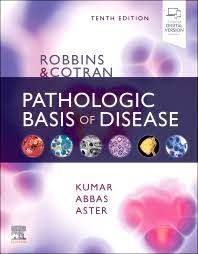

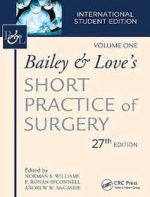
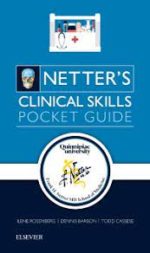
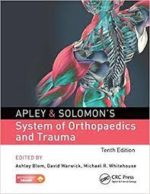
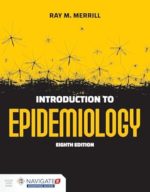

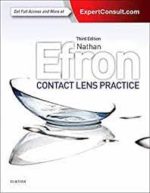

Be the first to review “Robbins & Cotran Pathologic Basis of Disease, 10th Edition”